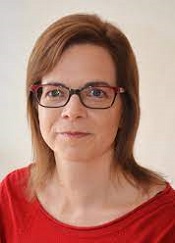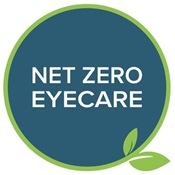LOCs/AOC and Commissioning
ECOO reaction Optometry First
Optometry First approach ‘finds favour’ with eye care audience in European conference
LOCSU’s clinical director Zoe Richmond reports visit to the European Academy of Optometry and Optics (EAOO)
LOCSU’s clinical director Zoe Richmond reports that key messages from Optometry First found favour with her audience at the European Academy of Optometry and Optics (EAOO) in Poland. Hosted in Poznan, the annual EAOO conference was held alongside the European Council of Optometry and Optics (ECOO) spring meeting.
Zoe presented initial data and lessons from one of the Optometry First early adopter sites in England, at the 3-day conference focused on Eyecare in the Changing World.

Zoe said: “My presentation was Evaluation of a new care model ‘Optometry First’ to help meet ophthalmology demand. The core message was that “by broadening the scope of care delivered within primary eyecare, utilising and enhancing the capacity and capability already available within practice teams, we can release capacity within hospitals for more complex care. This clearly resonated with the audience who were struggling with capacity issue in their own countries.”
She added: “The significant mismatch between capacity and demand within ophthalmology services in England has been evident for many years as has the fact that there is a large and highly trained primary care workforce ready and able to extend their scope of work to fill these gaps. Our challenge is how to scale up, and deliver country-wide impact with best outcomes for patients and viability for our practices.”
“The agenda for the conference was wide-ranging and included service innovations from other countries. In a session describing the introduction of a new tele-triage system in the Netherlands, the pressures described due to increasing clinical demand were all very familiar. The capacity pressures were also similar but extended to primary care, with a country-wide shortage of optometrists in optical practice. The tele-triage solution was designed to improve access and reduce waiting times for sight testing services and the management low complexity complaints.”
The speaker, Betul Tekeli, commented that in the Netherlands: “Optometric care is very expensive and not accessible for many people” adding “there’s high referral from general practice to the ophthalmologist for assessment, missing optometry.”
In the same location at the ECOO spring meeting, this theme was echoed by Professor Kovin Naido of the OneSight EssilorLuxottica Foundation in his presentation “Eyecare in the changing world: Scaling up for impact”. Professor Naido set out why he feels that primary eyecare has never been in a stronger position whilst warning that the sector must be both receptive and responsive to remain relevant.
Another ECOO session included an address from the Ukraine Professional Association. Zoe commented: “This address was very moving and allowed the rest of us to put in perspective our own challenges. In the Ukraine they are still trying to create a professional education system for eyecare, forced to deliver their training online at a time of conflict, whilst prioritising essential eyecare needs of their armed forces.”
The European Council of Optometry and Optics (ECOO) represents the interests of optometrists and opticians across Europe. The College, ABDO, AOP and FODO are members, as are many other national professional associations from 21 countries, including FODO Ireland, who together represent more than 150,000 opticians and optometrists. ECOO aims to promote eye health to the public across borders and to harmonise clinical and educational standards of optometric and optical practice throughout Europe.
























